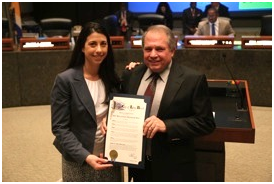[vc_row][vc_column][vc_single_image image=”949″ img_size=”full” alignment=”center”][vc_custom_heading text=”“A Piece of My Mind”” font_container=”tag:h1|font_size:50px|text_align:center|color:%232633ef” google_fonts=”font_family:Bitter%3Aregular%2Citalic%2C700|font_style:700%20bold%20regular%3A700%3Anormal”][vc_custom_heading text=”December 2017 Newsletter” font_container=”tag:h1|font_size:30px|text_align:center|color:%232633ef” google_fonts=”font_family:Bitter%3Aregular%2Citalic%2C700|font_style:700%20bold%20regular%3A700%3Anormal”][/vc_column][/vc_row][vc_row][vc_column width=”2/3″][vc_column_text]
Advancing Christian Faith and Values,
Defending Religious Liberty for All,
Supporting Civility and the Common Good
through Preaching, Teaching, Writing, Activism and Reasoned Conversations
www.donaldshoemakerministries.com[/vc_column_text][/vc_column][vc_column width=”1/3″][vc_single_image image=”687″ img_size=”full” alignment=”center”][/vc_column][/vc_row][vc_row][vc_column][vc_custom_heading text=”The Protestant Reformation at 500″ font_container=”tag:h1|font_size:30px|text_align:center|color:%232633ef” google_fonts=”font_family:Bitter%3Aregular%2Citalic%2C700|font_style:700%20bold%20regular%3A700%3Anormal”][vc_custom_heading text=”1517 – 2017″ font_container=”tag:h2|font_size:20px|text_align:center|color:%232633ef” google_fonts=”font_family:Bitter%3Aregular%2Citalic%2C700|font_style:700%20bold%20regular%3A700%3Anormal”][vc_custom_heading text=”Lessons from the Reformation #6″ font_container=”tag:h2|font_size:20px|text_align:center|color:%232633ef” google_fonts=”font_family:Bitter%3Aregular%2Citalic%2C700|font_style:700%20bold%20regular%3A700%3Anormal”][/vc_column][/vc_row][vc_row][vc_column width=”1/2″][vc_single_image image=”1044″ img_size=”full”][/vc_column][vc_column width=”1/2″][vc_column_text]
The Singing Reformation!
“Hark! the herald angels sing,
Glory to the newborn King.”
[/vc_column_text][/vc_column][/vc_row][vc_row][vc_column][vc_custom_heading text=”The Singing Reformation!” font_container=”tag:h1|font_size:30|text_align:left|color:%232629ef”][vc_column_text]Church historian Kenneth Scott Latourette said whenever there was a true revival among God’s people, inevitably there was also a new hymnody—the revived church praised the Lord with music expressing its own genre. In each revival, believers sang to God with the music they sang in their normal lives.
The 16th Century Reformation was a great example of this. MARTIN LUTHER himself was a big fan of robust congregational singing. Luther biographer Eric Metaxas exuberantly says Luther brought “a glorious revival of music and congregational singing in the life of the church, one that would peal and resound around the globe for centuries.” (Martin Luther, Viking, 2017) *
For five centuries, Luther’s magisterial hymn “A Mighty Fortress Is Our God” has been sung by Christian congregations. In fact, I once heard it sung in a Roman Catholic Church.
Many of our great Christmas Carols are products of the Reformation—not the initial Reformation of the 1500’s, but later. God be praised, radical reformers who wanted to ban worship experiences that can’t be found in the Bible didn’t win out (Andreas von Karlstadt said, “Relegate organs, trumpets, and flutes to the theater. The lascivious notes of the organ awaken thoughts of the world” –Metaxas, p. 270). The more moderate Reformers like Luther mostly won this debate. So we can heartily sing the great Carols each Christmas season—and be allowed to have a Christmas season in which to sing them!
 CHARLES WESLEY (1707-1788) and his brother John (1703-1791) were instrumental in establishing the Methodist Reformation, if I may call it that. With a call to conversion, heart-felt faith and personal holiness, this movement spread throughout England and America in the 18th Century and after.
CHARLES WESLEY (1707-1788) and his brother John (1703-1791) were instrumental in establishing the Methodist Reformation, if I may call it that. With a call to conversion, heart-felt faith and personal holiness, this movement spread throughout England and America in the 18th Century and after.
Charles was an incredibly gifted hymnwriter. Various numbers are given, but Charles’ songs certainly number over 6000. Many of these were evangelistic choruses that would fulfill their purpose and not enter into the Christian community’s reservoir of songs, but many others are sung still today.
Each Christmas Season I look forward to singing “Hark, the Herald Angels Sing.” It was one of Wesley’s best, published in 1739, and in my opinion is the greatest Christmas Carol we have. Notice its wondrous confession of Jesus:
Hark! The herald angels sing,
“Glory to the newborn King.
Peace on earth and mercy mild,
God and sinners reconciled!”
Joyful, all ye nations, rise;
join the triumph of the skies;
Universal Nature say
“CHRIST the LORD is born to Day!”
Christ by highest heav’n adored,
Christ, the everlasting Lord,
late in time behold Him come,
offspring of the virgin’s womb.
Veiled in flesh the Godhead see;
hail the incarnate Deity,
pleased as man with men t’appear,
Jesus, our Immanuel here.
Hail the heav’n-born Prince of Peace!
Hail the Sun of Righteousness!
Light and life to all He brings,
ris’n with healing in His wings.
Mild He lays His glory by,
born that man no more may die, **
born to raise the sons of earth,
born to give them second birth.
Hark, the herald angels sing,
“Glory to the newborn King!”
[NOTE: I’ve given Wesley’s original lyrics, which sometimes are not the way we sing this carol today. But Wesley began with “HARK how all the Welkin rings”, which George Whitefield in 1758 wisely changed to the words we still sing. “Welkin” was an antiquated word for the Heavens.][/vc_column_text][vc_row_inner][vc_column_inner][vc_column_text] “Give us something better, young man!” said a church official to a young ISAAC WATTS (1664-1748). Psalm singing was the order of the day, and Watts was a poetic genius who became frustrated with the low qualities of many “Praise Choruses” of his day that were based on the Psalms. He broke with this legalistic drudgery and created some great English hymnody, earning the title “The Father of English Hymnody”.
“Give us something better, young man!” said a church official to a young ISAAC WATTS (1664-1748). Psalm singing was the order of the day, and Watts was a poetic genius who became frustrated with the low qualities of many “Praise Choruses” of his day that were based on the Psalms. He broke with this legalistic drudgery and created some great English hymnody, earning the title “The Father of English Hymnody”.
His great Christmas Carol, “Joy to the World”, however, was within the Psalmody tradition. It took the theme of Psalm 98 (“Shout for joy to the Lord, all the earth; burst into jubilant song with music.”) and applied it to Jesus:
Joy to the world, the Lord is come!
Let earth receive her King!
Let ev’ry heart prepare Him room,
and heav’n and nature sing,
and heav’n and nature sing,
and heav’n, and heav’n and nature sing.
He rules the world with truth and grace,
and makes the nations prove
the glories of His righteousness
and wonders of His love,
and wonders of His love,
and wonders, wonders of His love.
* Martin Luther broke with the liturgical tradition where music was sung by a skilled few and watched by many. He saw the importance of a singing congregation. Much of today’s “contemporary worship” is not progressive. Instead, it represents a regression to pre-Reformation days for it once again has the congregation observing while music is performed by a skilled few. Much of “Contemporary worship” badly needs a Reformation Revival!
** When you sing Christmas Carols in church this season, pay close attention to the lyrics you are given and don’t just sing from memory. Many carols have “new and improved” gender-neutral lyrics (or have corrupted the text, depending on your bias). Sadly, the great Christmas Carol “God Rest Ye Merry, Gentlemen” does not make it intact into some newer hymnals at all![/vc_column_text][/vc_column_inner][/vc_row_inner][vc_row_inner][vc_column_inner width=”1/2″][vc_custom_heading text=”Bible Insight –
At Christmas We Mourn
the Senseless Death of Children
” font_container=”tag:h1|font_size:30|text_align:center|color:%23fc3a3a”][/vc_column_inner][vc_column_inner width=”1/2″][vc_column_text]
1st Baptist Church of Sutherland Springs, Texas
[/vc_column_text][/vc_column_inner][/vc_row_inner][vc_row_inner][vc_column_inner][vc_column_text]
When Herod realized that he had been outwitted by the Magi, he was furious, and he gave orders to kill all the boys in Bethlehem and its vicinity who were two years old and under, in accordance with the time he had learned from the Magi. Then what was said through the prophet Jeremiah was fulfilled:
“A voice is heard in Ramah,
weeping and great mourning,
Rachel weeping for her children
and refusing to be comforted,
because they are no more.”
– Matthew 2:16-18 (NIV)
[/vc_column_text][vc_column_text]Matthew’s Gospel saw a special fulfillment of Jeremiah’s prophecy in the murderous rampage of King Herod as he abused his God-bestowed authority.
It’s likely that up to two years had passed since the birth of Jesus (Mary and Joseph and Jesus by now are living in a home in Bethlehem). Taking no chances, Herod killed all the male children two and under. By the intervention of God (a dream to Joseph), Jesus was saved when the family fled to Egypt.
We are reminded from this Christmas story that the heart of God and the hearts of good people mourn the deaths of innocent children. Eight children and teens were among the 26 dead in the senseless slaughter at 1st Baptist Church of Sutherland Springs, Texas on November 5. No, make that nine children—one unborn child was murdered.
The homes of innocent Bethlehemites with little children were “soft targets”. I thought of this when I thought of church gatherings now—also “soft targets”.
I read this recently about the early days of the Pilgrims in America:
“The Massachusetts Bay Colony ordered parents to arrange for arms training for all their children aged 10 or above, both boys and girls. Conscientious objectors were exempt. Arms carrying was often mandatory for travel outside of towns and for attendance at large public events, particularly church services. Then, as now, unarmed church services were favorite targets for attack, because there would be lots of people gathered in a small space. “
– David Kopel, “The American Indian foundation of American gun culture,”
The Volokh Conspiracy, November 21, 2017 [emphasis mine]
Thankfully, in the providence of God, a neighbor of the Texas church who was experienced with firearms went forth with his own AR-15 rifle and engaged the shooter, who was wounded and fled in his SUV. The neighbor, Stephen Willeford, got into a pickup truck driven by another Good Samaritan, and the two chased the killer for several miles before he took his own life.
We cannot answer most of the “Why’s?” I ask, “Why couldn’t Mr. Willeford have learned more quickly about the shooting and saved more lives?” I don’t know. I do know this man “loved his neighbor as himself” (Matthew 22:39).
What we can say is that God sets standards of justice and hears the cry of the victims (Psalm 10:14). And all will stand before him on Judgment Day.
But you, God, see the trouble of the afflicted;
you consider their grief and take it in hand.
The victims commit themselves to you;
you are the helper of the fatherless.
Henry Wadsworth Longfellow was right when he wrote in “I Heard the Bells on Christmas Day”:
God is not dead nor doth he sleep.
The wrong shall fail, the right prevail,
With peace on earth, goodwill to men.
[NOTE: I do not want to diminish in any way the horrible, evil terrorist attack on the Sufi mosque in the Sinai on Nov. 24, which killed 305+, including 27 children. These people were all made in the Image of God. Their lives were all precious in his sight. They did not deserve to die.][/vc_column_text][/vc_column_inner][/vc_row_inner][/vc_column][/vc_row][vc_row][vc_column][vc_custom_heading text=”Observe the Advent Wreath this Christmas Season” font_container=”tag:h1|font_size:30|text_align:left|color:%23f73c27″][vc_column_text] The Advent Wreath points to the birth of Jesus. It has five candles—four red (or three purple and one pink) around a white candle in the center. One candle is lit each Advent Sunday before Christmas. Then Christmas Eve the fifth and center candle. Scripture reading, prayer and singing can fill the home each time.
The Advent Wreath points to the birth of Jesus. It has five candles—four red (or three purple and one pink) around a white candle in the center. One candle is lit each Advent Sunday before Christmas. Then Christmas Eve the fifth and center candle. Scripture reading, prayer and singing can fill the home each time.
Here are my suggestions to make the idea work:
On the first Sunday of Advent (December 3 this year), the first red or purple candle is lit. This candle is the “Prophecy Candle” or “HOPE candle,” in anticipation of the coming of the Messiah.
Scripture Reading: Isaiah 9:6-7
Christmas Carol: “O Come, O Come, Emmanuel”
On the second Sunday of Advent (December 10), the second red or purple candle is lit. This candle is the LOVE candle, representing the tenderness of Mary and Joseph at the manger where Jesus was born:
Scripture Reading: Luke 2:1-7
Christmas Carol: “O Little Town of Bethlehem”
On the third Sunday of Advent (December 17) the third red or the pink candle is lit. This candle speaks of JOY and celebrates the joy of the shepherds.
Scripture Reading: Luke 2:8-12
Christmas Carol: “Joy to the World”
The last red or purple candle represents PEACE and is lit on the fourth Sunday of Advent (December 24).
Scripture Reading: Luke 2:13-18
Christmas Carol: “Hark! The Herald Angels Sing”
Finally, on Christmas Eve the WHITE center candle is lit. Or perhaps you may wish to light it on Christmas Day this year, since Christmas Eve falls on the fourth Sunday of Advent. This candle is called the “Christ Candle” and represents the sinless, pure life of Christ that has come into the world.
Scripture Reading: Matthew 2:7-12
Christmas Carol: “O Come, Let Us Adore Him”
May this special observance of the birth of Jesus fill you with HOPE and LOVE and JOY and PEACE as you ponder the Christ Child, whom we worship.[/vc_column_text][vc_empty_space][/vc_column][/vc_row][vc_row][vc_column width=”1/4″][vc_empty_space][vc_single_image image=”567″ img_size=”full”][/vc_column][vc_column width=”3/4″][vc_custom_heading text=”Don’s Recent Sermons” font_container=”tag:h1|font_size:30px|text_align:center|color:%230316bc”][vc_column_text]Listen to Don’s sermons delivered at Grace Community Church. Go to: gracesealbeach.org/sunday/sermons
Then go to the appropriate date.
October 29 – “Reformation Reminder—The Freedom of the Christian”
July 30 – “Leaders Training Leaders” (The ministry of Priscilla and Aquila with Apollos, Acts 18:24-28)
June 4 – “The Day of Pentecost—Come Holy Spirit” (Acts 2:1-42)[/vc_column_text][/vc_column][/vc_row][vc_row][vc_column][vc_row_inner][vc_column_inner width=”2/3″][vc_custom_heading text=”A Joyous Christmas to All!
” font_container=”tag:h1|font_size:30|text_align:left|color:%23f43e38″][/vc_column_inner][vc_column_inner width=”1/3″][vc_single_image image=”1049″ img_size=”full” alignment=”center”][/vc_column_inner][/vc_row_inner][vc_column_text]
My Website: www.donaldshoemakerministries.com
Contact me at: donaldshoemakerministries@verizon.net</>
[/vc_column_text][/vc_column][/vc_row]



 Reformation Thanksgiving A Song During Suffering
Reformation Thanksgiving A Song During Suffering A Psalm for Thanksgiving Season
A Psalm for Thanksgiving Season Taylor Winston, 29, stole a utility pickup truck [emphasis mine] he found on the concert grounds and transported several injured people to the hospital before ambulances could arrive on the scene. The vet said they ran for cover and hopped a fence to get to safety. Once he landed on the other side, he said he reportedly saw a bunch of white trucks.
Taylor Winston, 29, stole a utility pickup truck [emphasis mine] he found on the concert grounds and transported several injured people to the hospital before ambulances could arrive on the scene. The vet said they ran for cover and hopped a fence to get to safety. Once he landed on the other side, he said he reportedly saw a bunch of white trucks. Religious Liberty Vigilance
Religious Liberty Vigilance “They all plotted together to come and fight against Jerusalem and stir up trouble against it. But we prayed to our God and posted a guard night and day to meet this threat.” – Nehemiah 4:8-9 (New International Version)
“They all plotted together to come and fight against Jerusalem and stir up trouble against it. But we prayed to our God and posted a guard night and day to meet this threat.” – Nehemiah 4:8-9 (New International Version)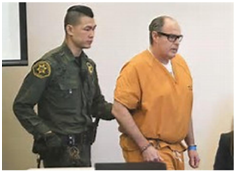 “The gates of hell flew open and you emerged as the face of evil in this community.”
“The gates of hell flew open and you emerged as the face of evil in this community.”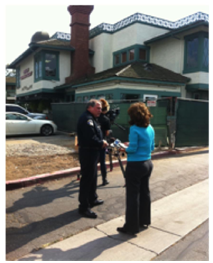 This chapter of the families’ agony is over. But as I told a NBC reporter in 2012, the word “closure” will never be appropriate. There are milestones, but no closures.
This chapter of the families’ agony is over. But as I told a NBC reporter in 2012, the word “closure” will never be appropriate. There are milestones, but no closures. [/vc_column_text][vc_column_text]
[/vc_column_text][vc_column_text] Dr. Wayne S. Flory (1927-2017)
Dr. Wayne S. Flory (1927-2017) [/vc_column_text][/vc_column][vc_column width=”1/2″][vc_column_text]
[/vc_column_text][/vc_column][vc_column width=”1/2″][vc_column_text] [/vc_column_text][/vc_column][/vc_row][vc_row][vc_column][vc_column_text]
[/vc_column_text][/vc_column][/vc_row][vc_row][vc_column][vc_column_text]

 “We hold these truths to be self-evident, that all men are created equal, that they are endowed by their Creator with certain unalienable Rights, that among these are Life, Liberty and the pursuit of Happiness. That to secure these rights, Governments are instituted among Men, deriving their just powers from the consent of the governed.” – Declaration of Independence
“We hold these truths to be self-evident, that all men are created equal, that they are endowed by their Creator with certain unalienable Rights, that among these are Life, Liberty and the pursuit of Happiness. That to secure these rights, Governments are instituted among Men, deriving their just powers from the consent of the governed.” – Declaration of Independence Burgess was interrupted by socialist councilmember Kshama Sawant. She rebuked his “Republican friends” comment and boasted she had no Republican friends—that the leftist cause had no place for this.
Burgess was interrupted by socialist councilmember Kshama Sawant. She rebuked his “Republican friends” comment and boasted she had no Republican friends—that the leftist cause had no place for this.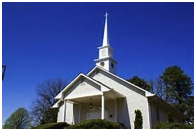 “Congress shall make no law respecting an establishment of religion, or prohibiting the free exercise thereof…” – 1st Amendment
“Congress shall make no law respecting an establishment of religion, or prohibiting the free exercise thereof…” – 1st Amendment “I understand that Christianity is the majority religion. But there are other people who have different religions in this country and around the world. In your judgment, do you think that people who are not Christians are going to be condemned?” * – Sen. Bernie Sanders (I-VT)
“I understand that Christianity is the majority religion. But there are other people who have different religions in this country and around the world. In your judgment, do you think that people who are not Christians are going to be condemned?” * – Sen. Bernie Sanders (I-VT) “Those who accepted his message were baptized…” (Acts 2:41 NIV).
“Those who accepted his message were baptized…” (Acts 2:41 NIV). “They devoted themselves to [I like the King James reading: “They continued steadfastly in”] the apostles’ teaching and to the fellowship, to the breaking of bread and to prayer” (Acts 2:42).
“They devoted themselves to [I like the King James reading: “They continued steadfastly in”] the apostles’ teaching and to the fellowship, to the breaking of bread and to prayer” (Acts 2:42).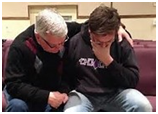 We need to learn the teachings of the apostles, especially when we’re together under the ministry of pastors and teachers (now that the apostles Jesus chose are gone). This means we need to learn the New Testament.
We need to learn the teachings of the apostles, especially when we’re together under the ministry of pastors and teachers (now that the apostles Jesus chose are gone). This means we need to learn the New Testament. Regular, even weekly, participation in Communion (a renewing and nourishing sign of the sacrificial death of Jesus and what it accomplishes for us and in us by faith) is a key part of a good, healthy spiritual walk.
Regular, even weekly, participation in Communion (a renewing and nourishing sign of the sacrificial death of Jesus and what it accomplishes for us and in us by faith) is a key part of a good, healthy spiritual walk.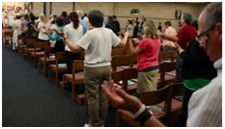 At the very least we must pray together for:
At the very least we must pray together for:



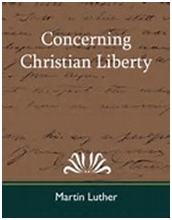

 We don’t have to ask about God’s will in the everyday matters of life. We are free to make our own choices bound only by God’s moral law and principles found in Scripture.
We don’t have to ask about God’s will in the everyday matters of life. We are free to make our own choices bound only by God’s moral law and principles found in Scripture. President Trump’s Executive Order on Religious Liberty and its impact on the “Johnson Amendment”
President Trump’s Executive Order on Religious Liberty and its impact on the “Johnson Amendment”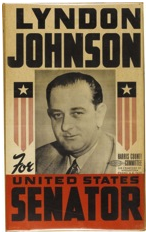 The “Johnson Amendment” forbids tax-exempt churches and other 501(c)3 organizations from endorsing or opposing a candidate for political office. It also forbids these groups from using a “substantial” portion of their resources to influence legislation. “Substantial” may be understood as “more than 5%”, a threshold that only the most politically activist churches would be in danger of crossing.
The “Johnson Amendment” forbids tax-exempt churches and other 501(c)3 organizations from endorsing or opposing a candidate for political office. It also forbids these groups from using a “substantial” portion of their resources to influence legislation. “Substantial” may be understood as “more than 5%”, a threshold that only the most politically activist churches would be in danger of crossing. Good News from Grace
Good News from Grace Don’s Upcoming Ministries
Don’s Upcoming Ministries
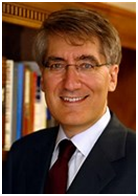
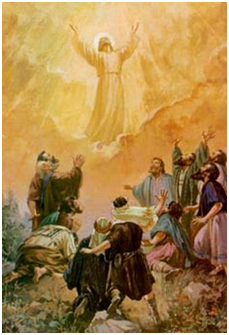 And [Jesus] led them out as far as Bethany, and lifting up his hands he blessed them. While he blessed them, he parted from them and was carried up into heaven. – Luke 24:50-51 (English Standard Version)
And [Jesus] led them out as far as Bethany, and lifting up his hands he blessed them. While he blessed them, he parted from them and was carried up into heaven. – Luke 24:50-51 (English Standard Version)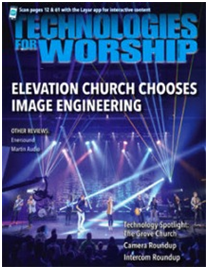 Church of the Immediate Moment”?
Church of the Immediate Moment”? A new law (AB1732) took effect in California on March 1, 2017.
A new law (AB1732) took effect in California on March 1, 2017.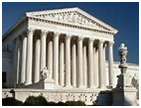 (And should one not believe in God, these words still represent the wisdom of the ages rather than the shifty politics of the moment.)
(And should one not believe in God, these words still represent the wisdom of the ages rather than the shifty politics of the moment.) Jesus was betrayed by his close friend and disciple. He was abandoned by the rest of his disciples. Peter, who most loudly professed loyalty to Jesus, denied him publicly multiple times.
Jesus was betrayed by his close friend and disciple. He was abandoned by the rest of his disciples. Peter, who most loudly professed loyalty to Jesus, denied him publicly multiple times.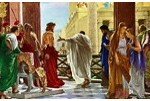 Governor, who in a vile moment of political opportunism sentenced him to death. Pilate—who washed his hands of innocent blood. Pilate—for whom “truth” is what is expedient, not what is right and just and abiding.
Governor, who in a vile moment of political opportunism sentenced him to death. Pilate—who washed his hands of innocent blood. Pilate—for whom “truth” is what is expedient, not what is right and just and abiding.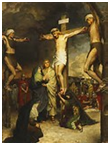 Jesus was put to death by crucifixion—a particularly cruel, agonizing, degrading form of execution.
Jesus was put to death by crucifixion—a particularly cruel, agonizing, degrading form of execution.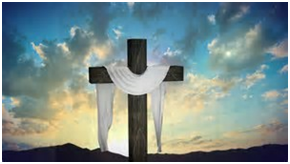 Now, brothers and sisters,
Now, brothers and sisters, “Ashes represent sorrow, remorse and repentance. Ashes look forward to God’s promise of forgiveness and blessing. God promises “beauty for ashes, the oil of joy for mourning, the garment of praise for the spirit of heaviness” (Isaiah 61:3).
“Ashes represent sorrow, remorse and repentance. Ashes look forward to God’s promise of forgiveness and blessing. God promises “beauty for ashes, the oil of joy for mourning, the garment of praise for the spirit of heaviness” (Isaiah 61:3). A long tradition in Christianity observes Ash Wednesday as the start of the Lenten Season. I’ve come to appreciate this observance and have led an Ash Wednesday prayer and Communion service at my church for several years now.
A long tradition in Christianity observes Ash Wednesday as the start of the Lenten Season. I’ve come to appreciate this observance and have led an Ash Wednesday prayer and Communion service at my church for several years now. The recent blow-up at the Berkeley campus of the University of California over outrageous libertarian Milo Yiannopoulos (his speaking event was cancelled) should alarm anyone who believes that robust free speech is an essential element of a truly liberal education as well as a constitutional right. That the speaker happened to be a gay conservative seemed to make the event especially leprous to the violent protesters. He violated the mold, so opposition must be extra virulent.
The recent blow-up at the Berkeley campus of the University of California over outrageous libertarian Milo Yiannopoulos (his speaking event was cancelled) should alarm anyone who believes that robust free speech is an essential element of a truly liberal education as well as a constitutional right. That the speaker happened to be a gay conservative seemed to make the event especially leprous to the violent protesters. He violated the mold, so opposition must be extra virulent. Bible Insight –Our Ministry of “Shalom” to a Needy Country
Bible Insight –Our Ministry of “Shalom” to a Needy Country Keith Boyer, 53, a 27-year veteran officer at the Whittier, California Police Department, was shot and killed while attending to a “routine” traffic accident call the morning of February 20.
Keith Boyer, 53, a 27-year veteran officer at the Whittier, California Police Department, was shot and killed while attending to a “routine” traffic accident call the morning of February 20.
 It’s 1994. Chuck and Sue Baker have a family-owned printing company in St. Albans, Vermont. They are devout Catholics.
It’s 1994. Chuck and Sue Baker have a family-owned printing company in St. Albans, Vermont. They are devout Catholics. So the Vermont Human Rights Commission threatened the Bakers with a $10,000 fine and a lawsuit for compensatory and punitive damages. And the ACLU sued the Baker’s, claiming the Baker’s wrongfully refused to do business in violation of state antidiscrimination law *.
So the Vermont Human Rights Commission threatened the Bakers with a $10,000 fine and a lawsuit for compensatory and punitive damages. And the ACLU sued the Baker’s, claiming the Baker’s wrongfully refused to do business in violation of state antidiscrimination law *. “… in a democracy, civility is not an option, it’s a precondition that makes our system possible . . . Without civility, political discourse becomes hostile and polarized. In the resulting chaos we become vulnerable to tyranny.” – Charles Colson
“… in a democracy, civility is not an option, it’s a precondition that makes our system possible . . . Without civility, political discourse becomes hostile and polarized. In the resulting chaos we become vulnerable to tyranny.” – Charles Colson Good Government: “…a wise and frugal Government, which shall restrain men from injuring one another,
Good Government: “…a wise and frugal Government, which shall restrain men from injuring one another, Nero, who ruled 54-68 AD, was no Jefferson or Madison or Reagan! He committed suicide after being declared a public enemy by the Roman Senate. He was the first emperor to persecute Christianity, and his oppression of Christians in Rome led, according to tradition, to the martyrdoms of the Apostles Peter and Paul.
Nero, who ruled 54-68 AD, was no Jefferson or Madison or Reagan! He committed suicide after being declared a public enemy by the Roman Senate. He was the first emperor to persecute Christianity, and his oppression of Christians in Rome led, according to tradition, to the martyrdoms of the Apostles Peter and Paul. Revivals don’t come from Government!
Revivals don’t come from Government!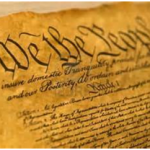 “Each State shall appoint, in such Manner as the Legislature thereof may direct, a Number of Electors, equal to the whole Number of Senators and Representatives to which the State may be entitled in the Congress…”
“Each State shall appoint, in such Manner as the Legislature thereof may direct, a Number of Electors, equal to the whole Number of Senators and Representatives to which the State may be entitled in the Congress…”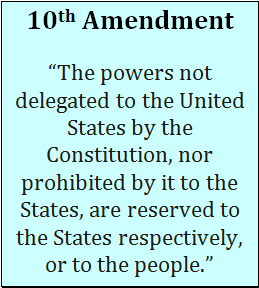 As the power and influence of the federal government has grown, the ideal of federalism has shrunk and the significance of the states and of the people has gotten smaller, contrary to the intent of the 10th Amendment. Direct popular election of the president would be a giant step away from federalism. (It would also ruin all the excitement of election night coverage on TV, where now the election is like an intense national Monopoly game—“Who will get North Carolina Avenue or put a hotel on Pennsylvania Avenue?”)
As the power and influence of the federal government has grown, the ideal of federalism has shrunk and the significance of the states and of the people has gotten smaller, contrary to the intent of the 10th Amendment. Direct popular election of the president would be a giant step away from federalism. (It would also ruin all the excitement of election night coverage on TV, where now the election is like an intense national Monopoly game—“Who will get North Carolina Avenue or put a hotel on Pennsylvania Avenue?”)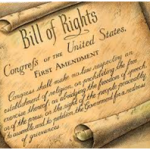 “Religious freedom is a principle based not on shared ancestry, culture, ethnicity, or faith but on a shared commitment to liberty — and it lies at the very heart of who we are as Americans.”
“Religious freedom is a principle based not on shared ancestry, culture, ethnicity, or faith but on a shared commitment to liberty — and it lies at the very heart of who we are as Americans.”